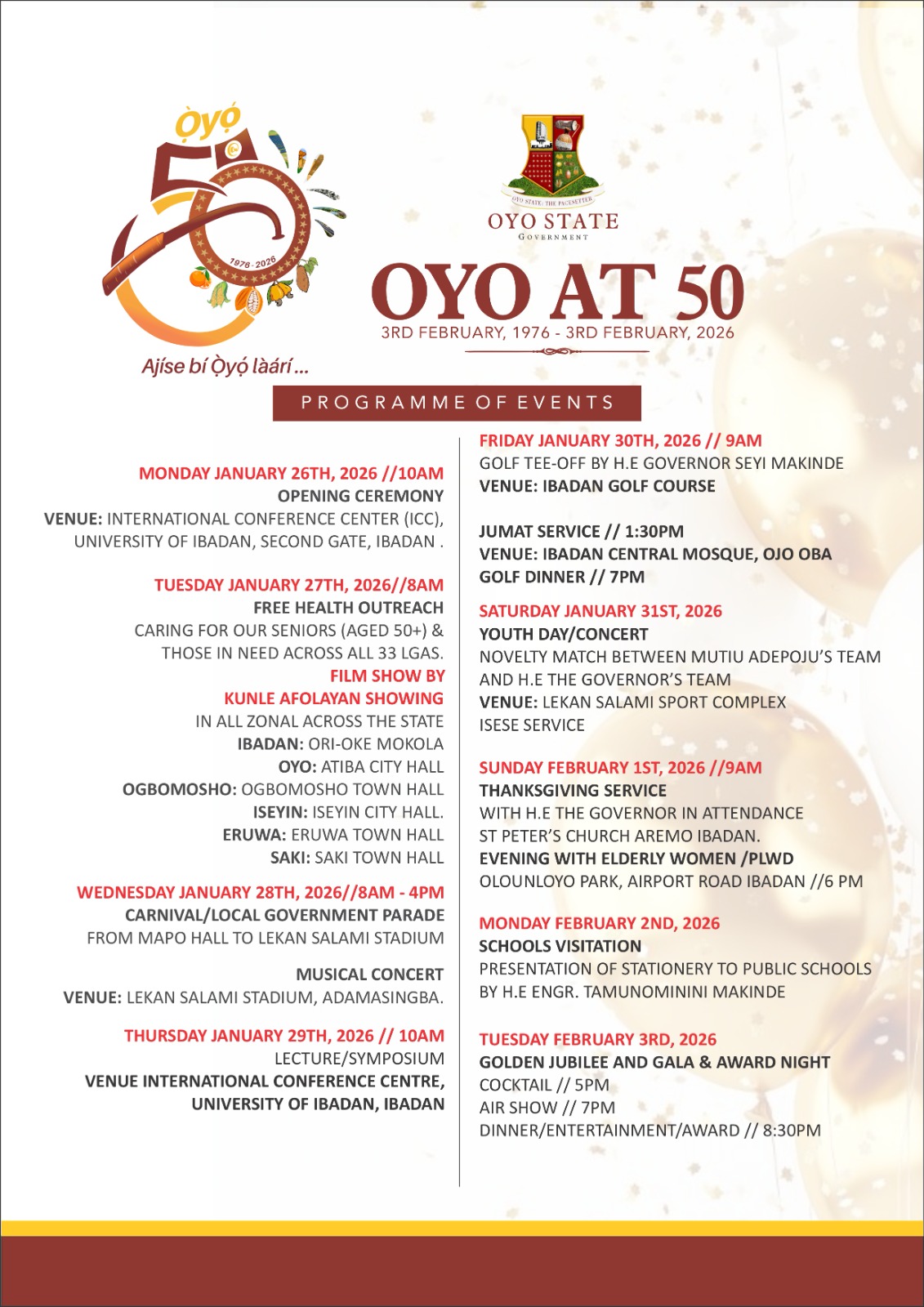Road Darkness, Insecurity, and Neglect: The Dangers of Non-Functioning Oyo State Government’s Street Lights in Ogbomoso By Rafiu Babatunde IBRAHIM (PhD)


For over a year, a pervasive darkness has fallen upon major traffic corridors of Ogbomoso, a direct consequence of the collapse of the state government’s street-lighting system. What was launched as a critical urban infrastructure project has now become a stark symbol of neglect, with residents grappling daily with fear and a rising tide of criminal activities.
An investigation into this infrastructural failure has revealed a critical and unsustainable detail: contrary to public assumption, a significant portion of these street lights are not powered by the national grid or solar energy but by fuel-powered generators. This discovery points to the soaring cost of diesel and petrol as a primary factor in the system’s collapse, exposing a fundamental flaw in its planning and sustainability. The power generating sets which were later converted from premium motor spirit (PMS) to gas are now completely in a shadow of itself now.

A City Plunged into Darkness and Fear
Areas like the densely populated Under G – LAUTECH Road, the bustling Takie-Oja’gbo-Isale Ora Road, Orita Naira-Stadium Road, Orita Naira – Kuye, and Maternity-Aromole-Ora Gada Road have been particularly hard-hit. These are not remote villages; they are the lifeblood of Ogbomoso, hosting thousands of students from the Ladoke Akintola University of Technology (LAUTECH), traders, and families.
The consequences of this extended blackout are dire and measurable. Residents report a frightening surge in armed robberies, phone snatching, home break-ins, and assaults. The darkness has provided perfect cover for criminals, turning essential commutes into perilous journeys.
The human cost of this neglect was tragically underscored on June 25, 2025, with the killing of Ridwan Oladipupo, a 300-level Agricultural Engineering student at LAUTECH. He was found dead in front of Nurudeen Grammar School along the unlit Under G Road—a loss that has shaken the community to its core and one that many believe was preventable.

The Unsustainable Fuel Dependency: A Design Flaw Unmasked
While the Oyo State Government under Governor Seyi Makinde deserves credit for the initial installation of the lighting system, its operational model contained a critical flaw. The reliance on generators has proven financially crippling in the face of Nigeria’s escalating fuel costs.
As the price of diesel and petrol continues to rise, the financial burden of powering a city-wide network of street lights has become unsustainable for the authorities responsible for their upkeep. This has led to the generators falling silent, one after the other, plunging the city into a darkness that grows more dangerous by the night. This situation raises serious questions about the foresight applied in selecting a power source vulnerable to such volatile economic forces.
The Ripple Effects of Neglect
The non-functioning street lights have triggered a cascade of problems:
1. Security Breakdown: Criminal elements operate with impunity in the dark, overwhelming under-resourced police and community vigilantes.
2. Economic Stagnation: Nighttime economic activities have dwindled as traders and transporters curtail their operations for fear of attacks.
3. Public Health Crisis: The mental well-being of residents, especially students, is under severe strain due to constant anxiety and stress.
4. Infrastructural Decay: The state’s investment in the physical poles and fixtures is now deteriorating, representing a significant waste of public funds.
A Call to Action for the Oyo State Government
Merely repairing the generators is a temporary and economically unviable solution. The government must undertake a fundamental overhaul. The state government is therefore urged to:
1. Initiate an Immediate Audit and Temporary Fix: Immediately deploy a rapid-response team to conduct a full audit of the street lighting system and provide temporary, secure lighting, especially in student-heavy areas like Under G.
2. Accelerate a Sustainable Power Migration Plan: The government must publicly commit to and fund a plan to migrate the street-lighting system from fuel-dependent generators to a sustainable source. This could involve connecting them to the grid with backup solar panels or transitioning entirely to modern, smart solar street lights with automatic sensors and tamper-proof batteries.
3. Establish a Transparent Maintenance Protocol: Institute a publicly advertised quarterly maintenance schedule and a dedicated complaint hotline for residents to report faults, ensuring accountability.
4. Enhance Security Patrols: As an interim measure, increase police and vigilante patrols in the most affected corridors to deter crime and restore a sense of safety.
Conclusion
The darkness in Ogbomoso is more than an inconvenience; it is a failure of governance that is costing residents their safety, peace of mind, and, as in the case of Ridwan Oladipupo, their lives. The discovery of the generator-powered system reveals a planning failure that has been exacerbated by economic reality.
The Oyo State government must act with urgency and wisdom. It is not enough to fix what is broken; it is imperative to rebuild it better. The people of Ogbomoso, particularly its student population who represent the future of our nation, deserve to walk their streets at night without fear. They deserve a government that provides not just infrastructure, but smart, sustainable, and functioning infrastructure that truly safeguards its citizens.
Ogbomoso residents are united in one concern: the darkness must end. With rising crime, growing fear among students, and a preventable loss of life already recorded, the community is urging the state government to act swiftly. “Streetlights are not a luxury—they are a public safety necessity,” says Dr. Olawale, a resident. “Every extra day of darkness exposes more residents to danger.” Until the lights come back on, the people of Under-G and many others across Ogbomoso remain at the mercy of nocturnal crime.
Rafiu Babatunde IBRAHIM is an Urban & Infrastructure Development Planner, and Public Affairs Analyst, writes from Ogbomoso, Oyo State.
...For the latest news update, Subscribe to our Whatsapp Channel (Click Here) and join our Telegram Update Group (Click Here)

You can also advertise your Product and Services on our page for more patronage
Contact us today by sending your Stories, Articles, Events, and Eyewitness Reports for publications as well as products and services for advertisement to westerndailies2018@gmail.com or WhatsApp (+2348058448531) for more information



